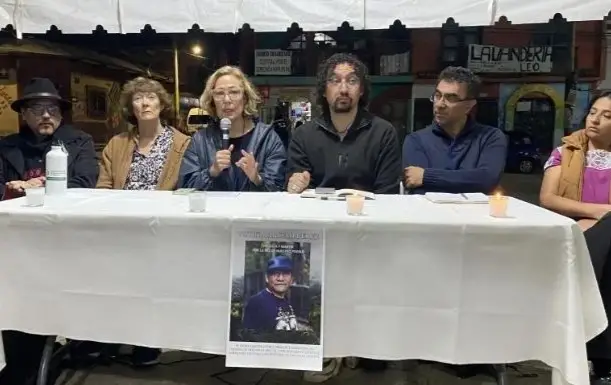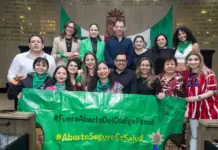The Platform for Peacebuilding in Mexico warned that the state of Chiapas continues to face serious forms of violence, impunity, and displacement, despite the official discourse that boasts of the restoration of peace.
The platform’s statement coincides with the appearance of the head of the Secretariat of Security and Citizen Protection (SSPC), Omar García Harfuch, before the Political Coordination Board (Jucopo) of the Chamber of Deputies to discuss the situation of violence in the country.
During its Fourth National Meeting, held in San Cristóbal de Las Casas, the organizations that make up the Platform—an alliance created in 2020 to confront the challenges of widespread violence in the country—pointed out that, although state authorities have implemented new security strategies, these are based on a logic of “coercive pacification” and not on genuine peacebuilding.
On October 20 and 21, several events coincided in the state that, according to the Platform, reflect the gap between government rhetoric and everyday reality. While Governor Eduardo Ramírez Aguilar led a march in Chicomuselo under the slogan “the peace that has returned,” in other regions of Chiapas, demands for justice and truth were voiced.
In San Andrés Larráinzar, thousands of parishioners from the Pueblo Creyente (Believing People) made a pilgrimage to mark the first anniversary of the assassination of Father Marcelo Pérez Pérez, renowned for his work in defense of human rights and peace. During the march, slogans such as “we want peace, not pretense” and “enough of so much impunity” were heard.
Simultaneously, in Tuxtla Gutiérrez, the Madres en Resistencia (Mothers in Resistance) collective maintained their sit-in in front of the state Attorney General’s Office, demanding justice for their relatives who were victims of femicide or disappearance. That same weekend, Edith Domínguez buried her son, who had disappeared in June and was recently found dead.
The Platform denounced that, although the number of armed confrontations has decreased, forced displacement, fear of reporting crimes, and disappearances, especially of children and adolescents, persist. It also warned of arbitrary detentions and torture during security operations, facts that contradict the narrative that Chiapas is the second safest state in the country.
“The official peace discourse makes structural problems invisible. More than a context of peace, most of the state is becoming a silenced zone,” the coalition warned.
The organizations insisted that true peace is not imposed through containment or force, but is built with truth, justice, reparations, and community participation.
“We are committed to a peace that is not only the absence of violence, but the full presence of rights and dignified living conditions,” they emphasized in their statement.
Finally, at the close of its Fourth Meeting, the Platform reaffirmed its commitment to a peace “that is woven collectively from memory, organization and life.”

Source: proceso




